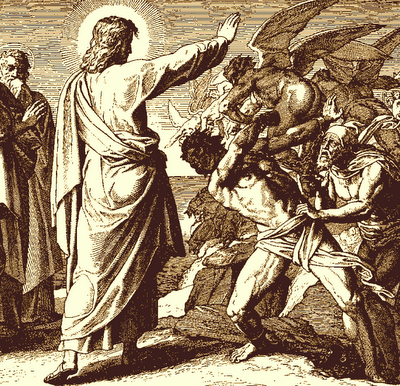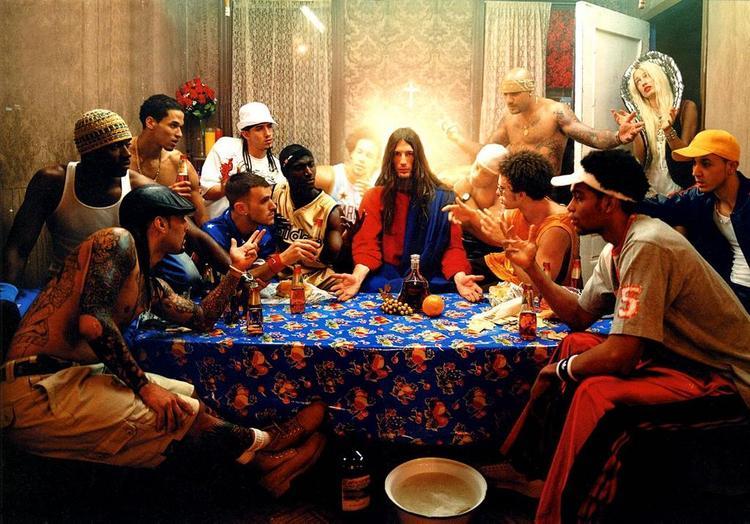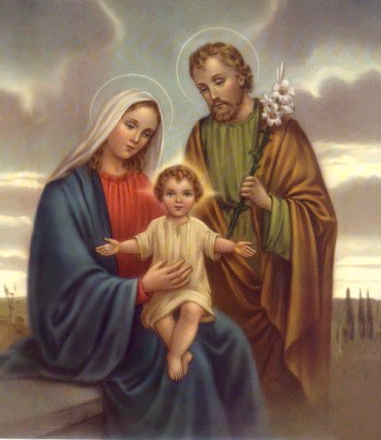Today’s readings
One of the best Lenten reminders that I can think of comes in today’s second reading. Here, Saint Paul tells the Philippians that “our citizenship is in heaven.” We know how true this is. We may have made homes here, and experienced our lives thus far here on earth, but the truth is we are just passing through this place. Our true citizenship is in heaven, and it is the goal of all our lives to get there. That’s why Lent is so important: this season reminds us of where we are going and gives us the opportunity to get there, if we have been off the path, which we all have in some way. That’s the Lenten message of repentance and it’s the reason for our fasting, almsgiving and prayer.
We see that message throughout today’s Liturgy of the Word. In the first reading, God promises Abram – later to be named Abraham – that he would make his descendants as numerous as the stars in the sky. Abraham placed his faith in that promise, and God sanctified it by making covenant with him. In the Gospel, Peter, John and James get to see a little bit of the heavenly inheritance when they experience the transfigured Jesus conversing with Moses and Elijah, the personification of the Law and the Prophets. On this Transfiguration Sunday, we can catch a glimpse of where we’re going, and hopefully be energized anew to pursue that inheritance.
The way that we pursue it is the essential Lenten discipline of repentance. Here we recognize the fact that we have wandered from the path to our reward, ask God’s pardon, receive the mercy and are restored to the inheritance promised to Abraham and made perfect in the covenant carved out of the sacrifice of Christ. That’s why we have Lent each year: we get the opportunity to repent, refocus and get back on the way. [We celebrate that this morning with Brian, our candidate who is preparing for Full Communion with our Church and will soon take part in the Sacrament of Reconciliation for the first time. As he prepares for that sacrament, we can see our own need for God’s healing mercy.] The alternative to repentance is truly life in hell: and it’s not so much that God sends us there, but more that we choose to go there by shutting God out and not receiving the gift of mercy that he longs to pour out on us.
I’d like to illustrate this by plucking out one of the story lines in the musical, Les Miserables. I had seen the stage version, but went on New Year’s Day to see the movie version with a priest friend, and it reminded me once again of the incredible truth that the story proclaims. Of the musicals that I have seen, this is truly my favorite. If you haven’t yet seen it, you should, and please know I’m not spoiling the whole thing for you.
The story begins with the release of the central character, Jean Valjean, from prison. But even as he’s released, he finds out from his jailer, Javert, that he really will never be free. He must carry papers that show that he was a convict for his entire life. Now, one might argue that this would be appropriate if he had, say, murdered someone. But we learn that his crime was a very excusable one: he stole a loaf of bread to feed his sister and her child. For that, he served nineteen years in prison, and would be on parole for the rest of his life. The jailer, Javert, is the other central character here. He felt Valjean’s sentence was a just one, and he could say that because his idea of the law was very black or white: either you did what was right, or you could go to hell – literally.
As the story unfolds, Valjean quickly learns the gravity of his plight. He can hardly find work or a place to stay, because the papers that he has to carry have him branded as a criminal, and even if someone would take him in or give him work, they were going to cheat him, knowing that he could not complain. He is eventually taken in by the local bishop, who gives him a meal and a place to stay. He treats Valjean kindly, but Valjean doesn’t know how to receive it. So he gets up during the night, takes some of the bishop’s silver, and heads out. He is quickly brought in by the police who take him to the bishop and tell him that Valjean claimed the items were a gift. The bishop, surprisingly, not only backs up his story, but says that Valjean had “left the best behind” and gives him two silver candlesticks. As the police leave, the bishop tells Valjean that he has been given grace in order that he might “become an honest man” and serve a higher purpose. That’s how grace works; we must receive it and then share it.
So that’s what Valjean does. He uses the money to start a business, which employs many people who would otherwise be poor, and he becomes the mayor of the town. But he learns that Valjean has continued to pursue him, and although he originally thought the mayor was Valjean, it turns out another man had just confessed to his crimes and is that very day being sentenced. He comes to Valjean to ask his pardon and offer his resignation for allegedly mistaking Valjean for, well, Valjean. At this point, Valjean could have ended Javert’s long career and pretty much ended his life. But he doesn’t do that; he goes to court and confesses so that the innocent man won’t have to pay for his crimes.
Valjean escapes the grasp of Javert and goes on to take in Cosette, the young daughter of a dying woman. He pledges to her mother that Cosette would want for nothing, and he raises her as his own daughter. This has him pretty much constantly on the run, always looking over his shoulder for Javert. Fast forward a bit to the revolution, during which Javert works as a spy and is caught by the student revolutionaries. Valjean helps them, and is promised a reward. He says that he wants nothing except to dispatch their prisoner. And it’s here that Valjean offers grace to Javert for the second time in the story. He lets him go and pretends to fire a gun at him, making the revolutionaries think he is dead.
Javert continues to pursue Valjean, swearing that he will “never rest” until he sees him “safe behind bars.” Later, after watching Valjean slip away yet again while extending mercy to a dying revolutionary, Javert confronts the issue of the grace that Valjean shows juxtaposed with what he thinks of him personally. He wrestles with why Valjean would choose to show him mercy, when he could have taken his life and had his vengeance. Unable to make sense of that, he realizes that he is already in hell. And he’s right – when we cannot accept grace, we have shut God out and are, in fact, in hell. That’s what hell is. At this point, all Javert could do was die, and so he commits suicide. In the movie version, that’s done in a rather jarring fashion, too. For me, this is the saddest part of the story, bar none – and that says a lot, because I usually shed quite a few tears when I see the show.
So there are two paths here. We can take Javert’s path, in which we refuse mercy to others and to ourselves, and trust instead in our own beliefs. When these don’t turn out to hold water, the realization is that this is hell, and all we have left to do is die. Or we can take Valjean’s path, accepting grace, using it to change our hearts and our lives, and live the life we were meant to live: a life that seeks out others and extends them mercy. The lesson here is that mercy transfigures us and puts us back on the path to our heavenly inheritance. Valjean eventually gets to see that, but I won’t spoil the end for you.
This Lent, I propose that we take Valjean’s path, and use our fasting, almsgiving and prayer to get back on the path to heaven. I propose that we celebrate God’s mercy by taking part in the Sacrament of Reconciliation. We have lots of opportunities for that. Mondays at 6:30, we hear confessions until all are heard. On Saturdays, we hear them from 4pm to 4:45. This coming Saturday, we have our morning of healing and will be hearing confessions from 10am to 11, when we’ll celebrate our Anointing of the Sick Mass. And we have the Parish Lenten Penance Service coming up next month. Please be sure to go to confession sometime during Lent. You’ll be amazed at how much you, and the world around you, can be transfigured by God’s mercy, and you’ll find all the world to be clothed in dazzling white. It’s an experience not to be missed, and while Javert thought his was the “way of the Lord,” the Sacrament of Reconciliation truly is.




You must be logged in to post a comment.